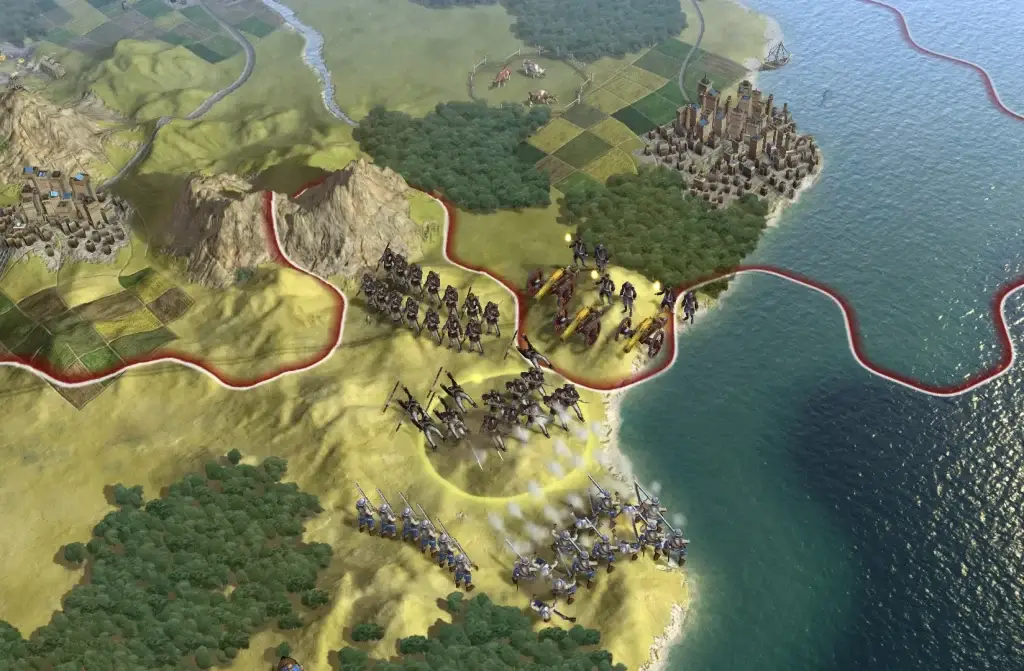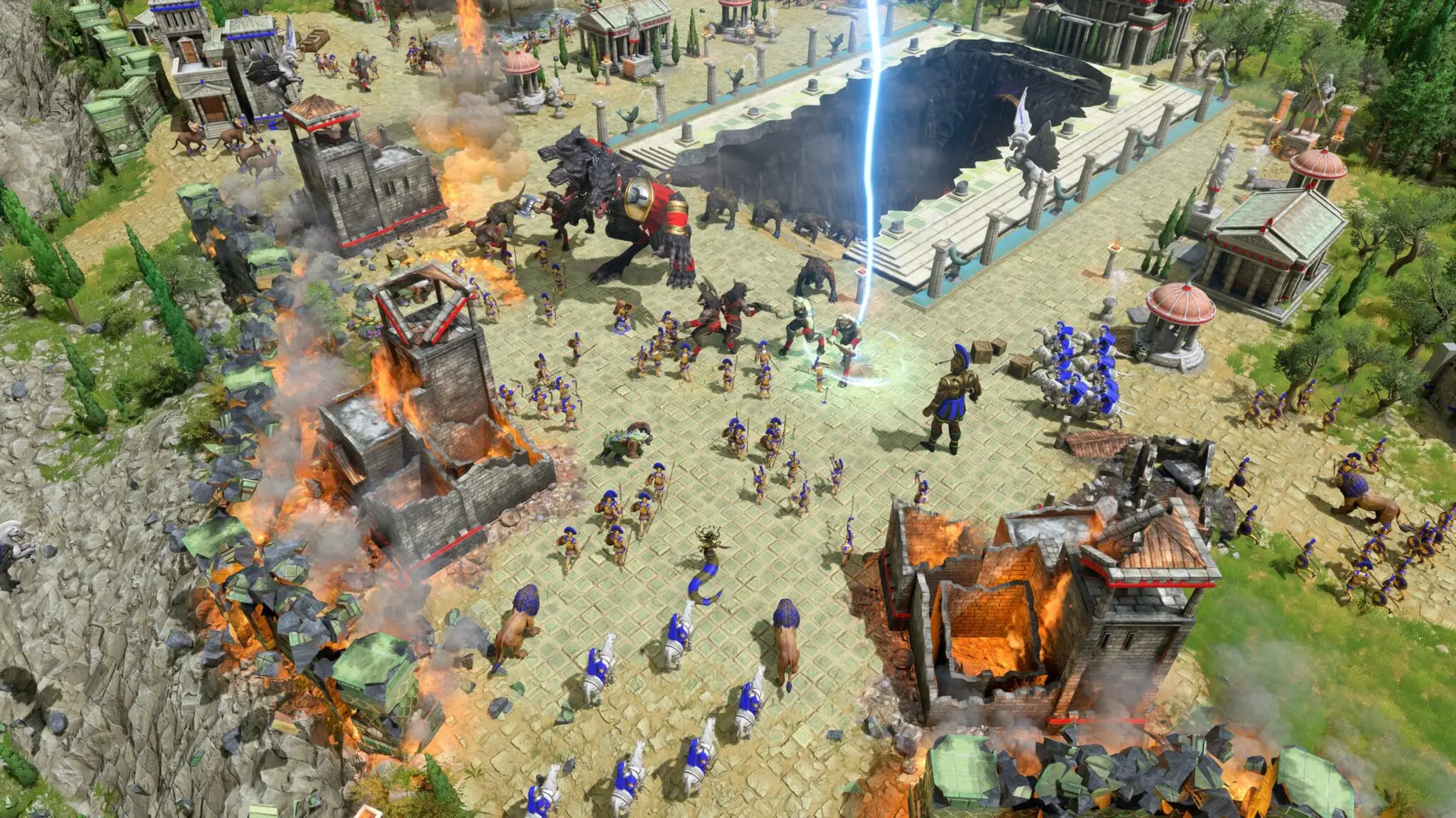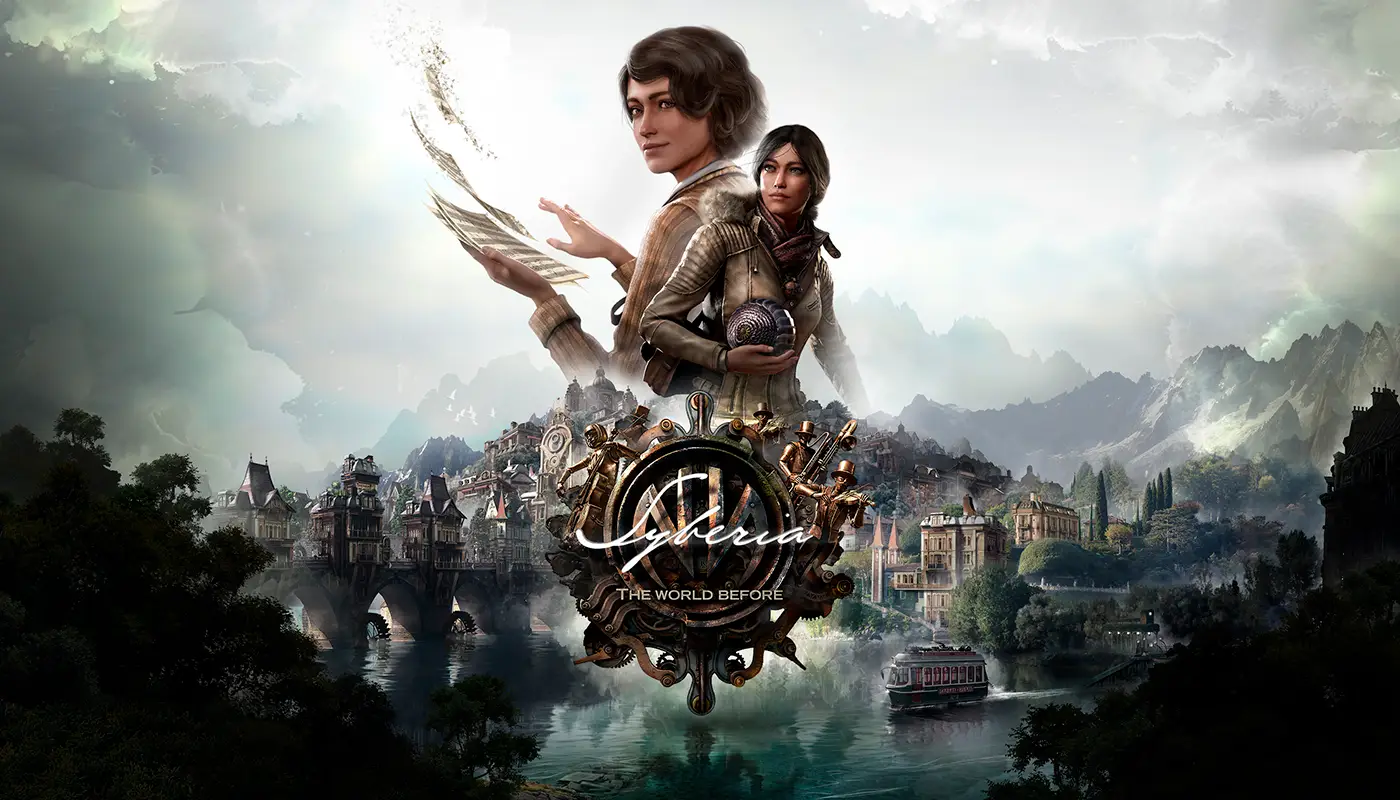Civilization 5 is a virtual time machine for creating your own history of humanity. Imagine that you control the fate of an entire nation, from its birth in ancient times to the technological future. That is why Civilization 5 deservedly bears the title of one of the best turn-based strategies. The complete charm of the gameplay created by the genius of Sid Meier immerses you in a world where every decision determines the future of your civilization.
Why Civilization 5 is the standard of turn-based strategies
When it comes to the development of civilization, Civilization 5 remains an unrivaled example of historical strategy. Every element, from the discovery of technologies to the conclusion of diplomatic alliances, deeply immerses the user in the process of creating and expanding their empire. The project masterfully simulates the real historical process: from Columbus’ discovery of America to the invention of the Internet – everything is presented here in the form of game stages and discoveries.
Real historical events are reflected in the mechanics of the game. Here you can feel like an ancient Greek city that decided to develop democracy for the first time, or a Mongol seeking to conquer new territories. All this is presented in such a way that any user feels like a part of something grand. Famous doctrines – such as “Tradition” or “Will” – offer development paths similar to the historical doctrines of different civilizations, allowing you to choose which strategic course to follow. Each action affects the general course of history, which creates a feeling of genuine control over the fate of the nation.
Gameplay and mechanics of Civilization 5
 A skillful combination of strategic thinking, diplomacy, and economics. The main gameplay is based on unique mechanics that allow you to immerse yourself in a session for a long. One of the key mechanics is the hexagon system. Unlike previous parts of the series, in Civilization 5 the map is divided into hexagons, which makes planning and placing cities more tactical.
A skillful combination of strategic thinking, diplomacy, and economics. The main gameplay is based on unique mechanics that allow you to immerse yourself in a session for a long. One of the key mechanics is the hexagon system. Unlike previous parts of the series, in Civilization 5 the map is divided into hexagons, which makes planning and placing cities more tactical.
The gameplay includes a well-thought-out system of cultural and scientific progress. Building wonders of the world, such as the Great Pyramid or the Great Wall of China, adds unique bonuses that can change the course of the game. You can choose your nation’s specialization – science, culture, or military might – and each of them will lead to victory in different ways. Scientific research will allow you to launch the first satellite, which will open the way to new technological achievements and bring you closer to victory through space.
Particular attention should be paid to the political branches: from autocracy to freedom – each opens up unique opportunities for the civilization, and the development of diplomacy allows you to form alliances, carry out intrigues, and even arrange trade embargoes against enemies. Politics in Civilization 5 is one of the most exciting parts of the session since every action has consequences.
Why Civilization 5 deserves a place on your PC
Unlike dynamic real-time strategies, which often require quick button mashing, Civilization 5 allows you to carefully consider each move. It is like a game of chess on a global level, where the participant decides the fate of an entire nation.
The project helps develop creative thinking. Each game requires a unique approach, taking into account various conditions – from the location of the starting position to the specifics of neighboring countries. Gradual planning and building long-term strategies allow you to feel real responsibility for each decision made.
Beginner’s Guide: How to Play and What to Expect
If you’re new to Civilization 5, don’t worry — it’s fairly easy to get the hang of the game, just follow a few basic guidelines. Start by exploring your surroundings. Exploration is the key to a successful start. The more territories you explore during your first few days, the better you’ll understand where it’s most profitable to find cities and what resources to use.
Key Territories and Resources:
- Forests provide bonuses to production and can be cut down to speed up the construction of buildings. Jungles, in turn, provide a bonus to science when building a university, making them important for scientific development.
- Coasts provide access to fish resources, increasing food growth and trade income. Placing cities near oceans also allows you to build harbors and ships, which increases your economic and military advantage.
- Mountains. Cannot be used for construction, but cities near mountains gain access to the Observatory Wonder, which significantly increases scientific growth. Mountains are also a good natural defense, making it more difficult for enemy attacks.
- Fertile plains are ideal for agriculture, providing high food yields, which contributes to rapid population growth in cities. Plains with access to rivers further increase production and income.
- Strategic resources. Horses are needed to create cavalry units, which makes them extremely important in the early stages of the game. Iron provides the ability to create strong combat units such as swordsmen and catapults.
- Rivers and lakes. Cities built near rivers receive a bonus to gold, which contributes to economic growth. Lakes can serve as a source of fresh water, increasing the yield of neighboring tiles.
- Deserts. At the beginning of the game, desert territories may seem useless, but the Petra wonder of the world turns deserts into powerful economic zones, increasing production and income.
The second important step is choosing doctrines. In the early stages of the game, we recommend choosing Tradition to develop one powerful city or Will for rapid expansion. These branches will help you find a balance between economic and military power. Recommended Doctrines and Wonders of the World for a Successful Start:
- Tradition. Good for developing one powerful city. Increases growth rate and strengthens infrastructure.
- Will. Ideal for aggressive expansion. Allows you to find new cities faster and receive bonuses from developing territories.
- Wonders of the World. The Pyramid speeds up construction, allowing you to build buildings and improvements faster. The Great Library provides free technology, which helps you get ahead of your rivals in the scientific race.
Diplomacy is an important factor. Learn to negotiate with your neighbors, but be prepared for the fact that peace will not always be strong. Conclude trade agreements to strengthen your economy, but keep your army ready – you never know when a former ally can become an enemy.
Conclusion
 Civilization 5 is a virtual history simulation that allows users to feel like an empire builder. Here you can build cities, enter into alliances, and develop culture and science, and every step affects the fate of the entire world. Intrigue, strategy, and civilization development create a unique gaming space in which you can get lost for hours, creating your own story. This experience will definitely not leave you indifferent.
Civilization 5 is a virtual history simulation that allows users to feel like an empire builder. Here you can build cities, enter into alliances, and develop culture and science, and every step affects the fate of the entire world. Intrigue, strategy, and civilization development create a unique gaming space in which you can get lost for hours, creating your own story. This experience will definitely not leave you indifferent.
 en
en  de
de  ar
ar  es
es  nl
nl  hi
hi  fr
fr  it
it  pt
pt  el
el 









